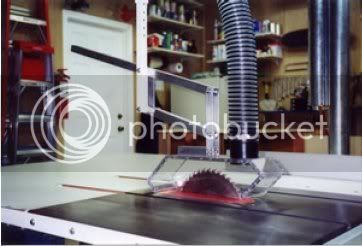Shivers":36jg7kwo said:
.......you'll find in most USA shops they operate without guards (riving knifes sometimes, although i think this is a bad idea for most situations),--believe it or not i found this more helpful as you have more clarity of the work being done,& therefore can control it better. Safety on a tablesaw has more to do with the techniques you employ vs the safety equipment on the machine
Sorry, but I think it's a might irresponsible to say that. You need both adequate guarding AND correct technique. Just because you haven't had an accident doesn't mean to say that you can continue without a guard and never have an accident - life just doesn't work that way. I haven't had an accident on the table saw, either, but I still try to ensure that it's properly guarded before use. I'd say that in almost all cases on a circular saw either the rip fence or the crosscut fence is guiding the material through the cut so the need to see what is happening is more perceived rather than actual should I now don my helmet and shout "incoming!"? :lol: ). The same goes for many machine we use. I feel that it's probably more useful to listen and feel what is happening rather than see it as that is just as likely to warn you of impending problems. OK, I accept that you may want to look for chip out on the top surface of materials such as MFC and MF-MDF, but in reality most breakout occurs on the underside of the piece, where it can't be seen, or at the rear on crosscuts, which can be dealt with by the addition of a spelch board. If you really insist on seeing what is happening then the thing to do is replace your solid metal/opaque plastic crown guard with something just a tad more effective and which will allow you the visual stimulus you crave, such as this:

It's American, so note the complete lack of a riving knife :roll: (For anyone interested there is an
article over at Badger Pond describing how to make this particular guard)
Shivers":36jg7kwo said:
.......having said that--the spindle moulder is a different subject (this is a machine that can KILL you)
In the days of French cutters, slotted collars and square cutter blocks, yes. But they were all banned in 1974 so you won't find anyone using them any longer. It was the old-style tooling which generated the fearsome reputation the spindle moulder held - modern tooling has pretty much put paid to that. I have no qualms about using the spindle moulder, but maybe having racked-up of hours on them without an accident I'm being blase.
Rubber gloves for protection, though, that's a new one! maybe we should all resort to butcher's chain mail gloves? Yellow rubber coated, of course :wink:
Scrit

































